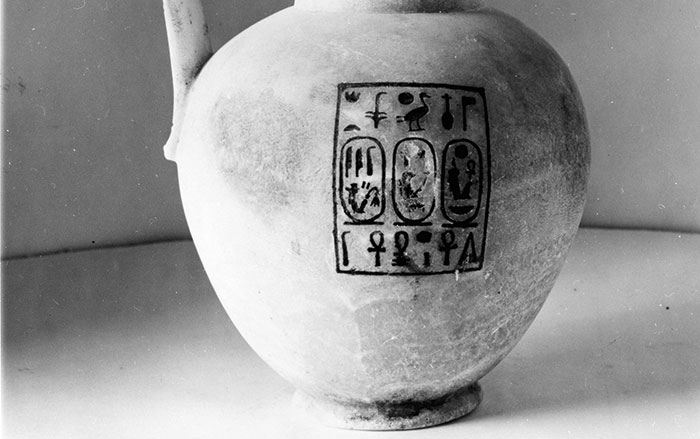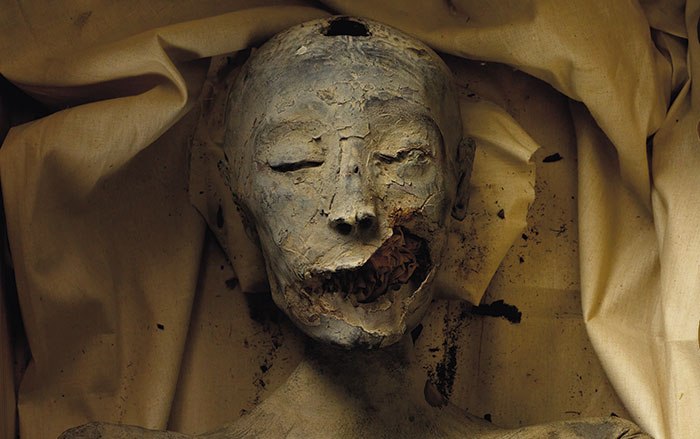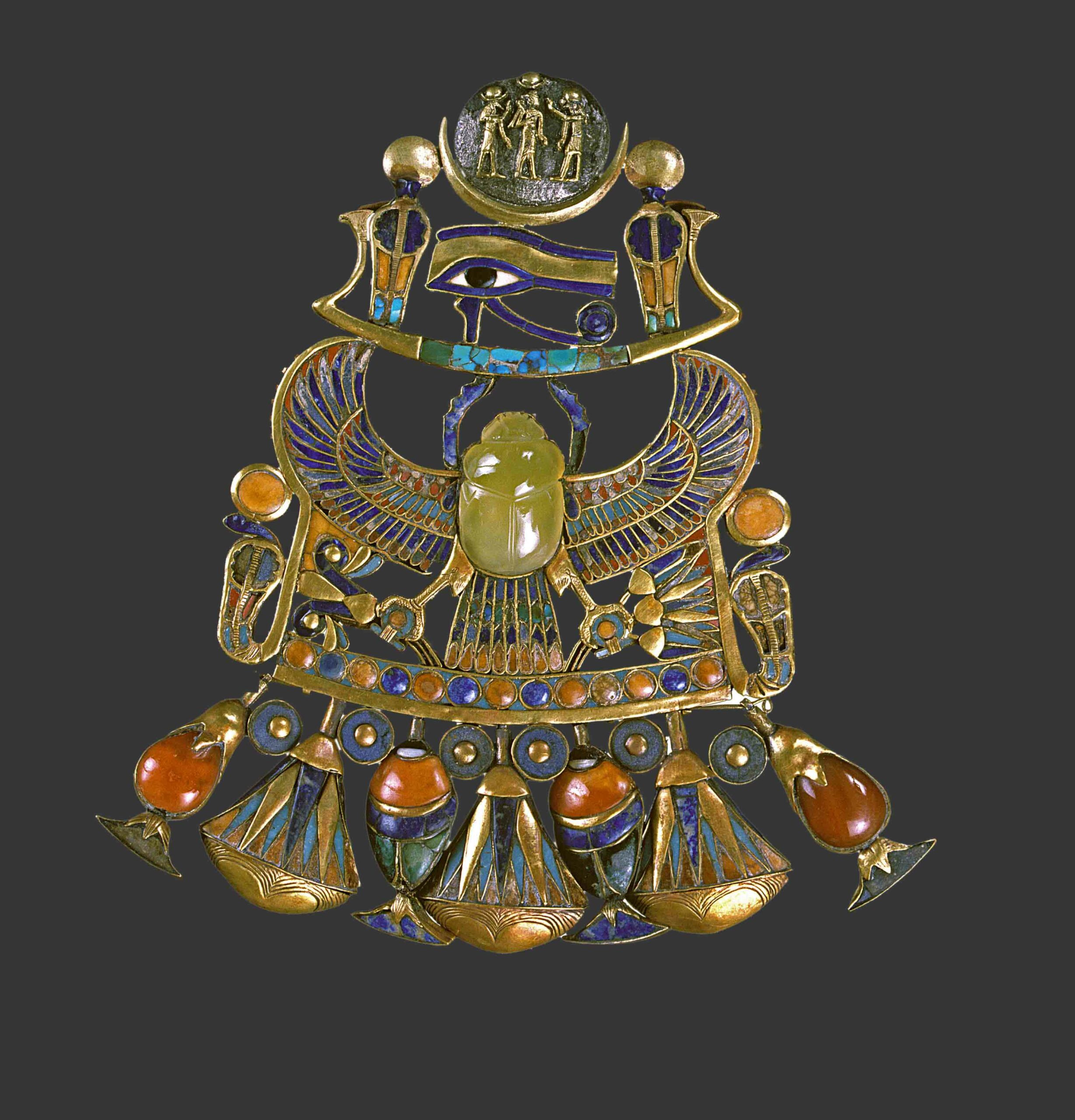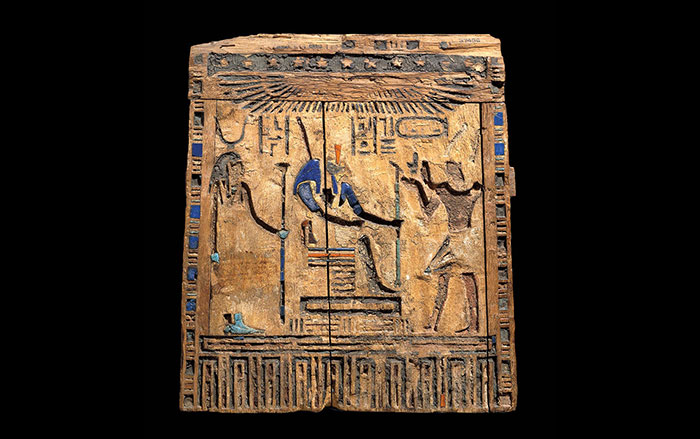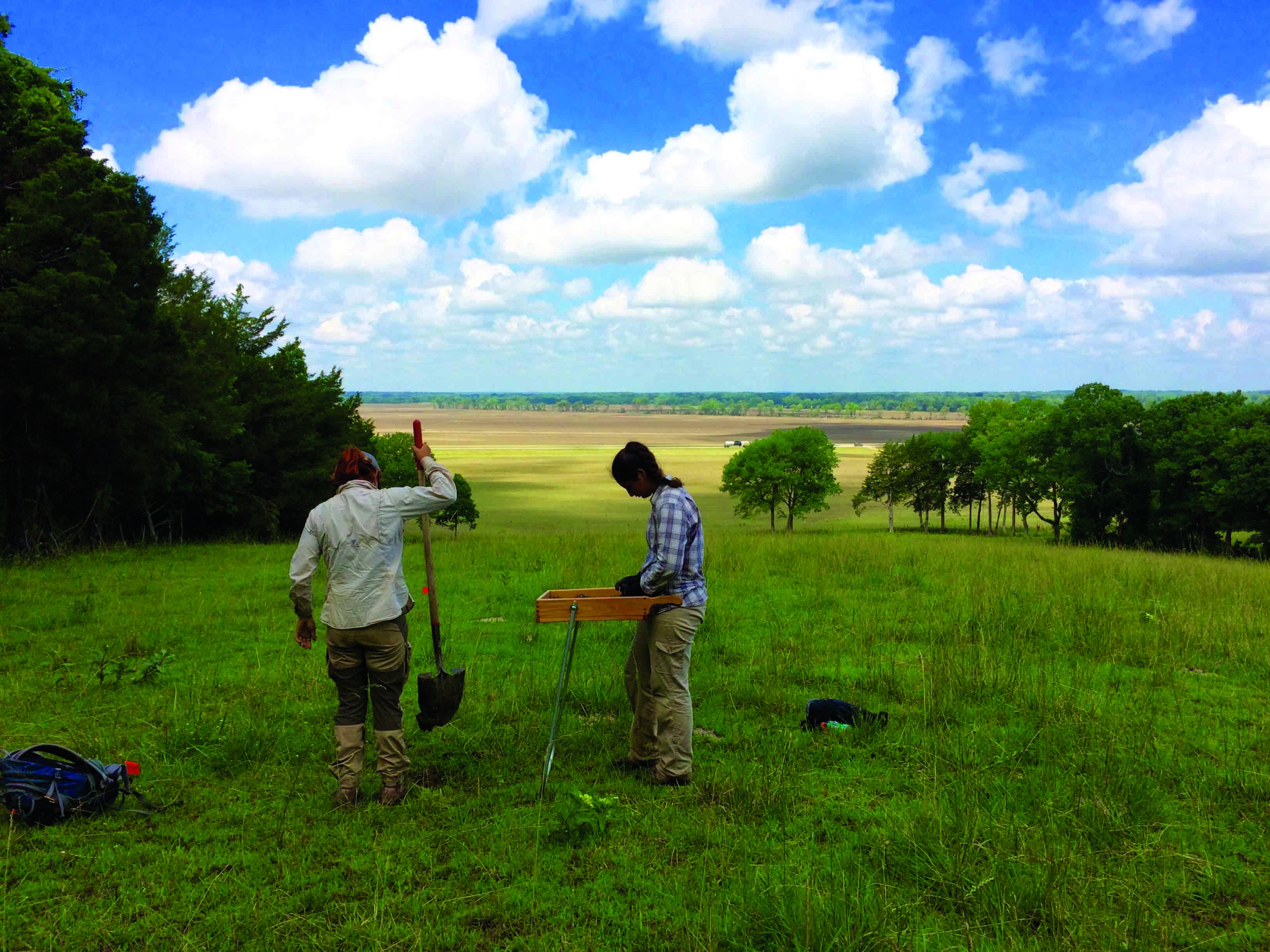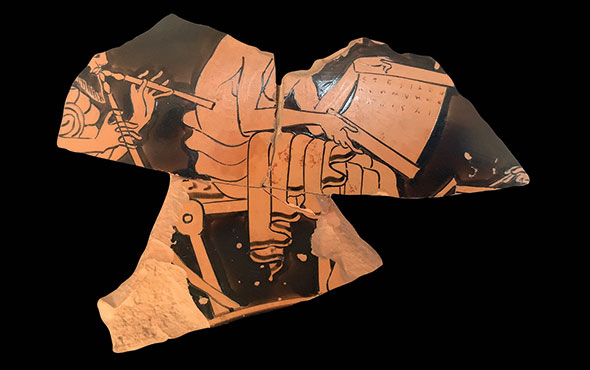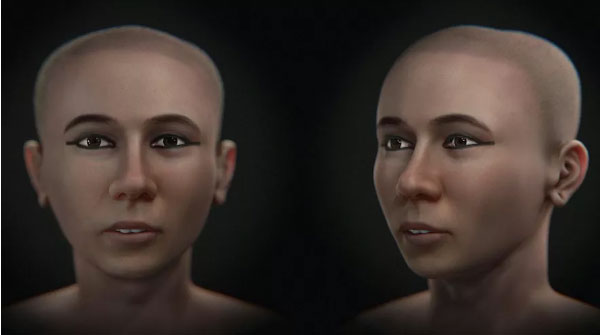
ADELAIDE, AUSTRALIA—Live Science reports that a new 3-D facial approximation of the ancient Egyptian pharaoh Tutankhamun has been created by Michael Habicht of Flinders University, graphics expert Cícero Moraes, and their colleagues. The image was based upon existing computed tomography scans of the complete skull of Tutankhamun’s mummy, and previously published X-rays and measurements of the skull. Review of this data confirmed that the skull was slightly longer than most, and that its brain volume was also larger than expected. “His skull has a particular shape; in our study the measurements showed affinities with skulls that underwent [skull reshaping], but this does not seem to be the case of Tutankhamun, because although it has a peculiar, elongated shape, everything indicates that it is a natural skull,” Moraes said. Tutankhamun became pharaoh at the age of about nine years old upon the death of his father Akhenaten, then died about ten years later around 1323 B.C. “His reign saw a return to the old gods after his father Akhenaten’s new [Aten] cult had failed and plunged the land on the Nile into chaos,” Habicht added. For more on Tut's family and their legacy, go to "Rediscovering Egypt's Golden Dynasty."


